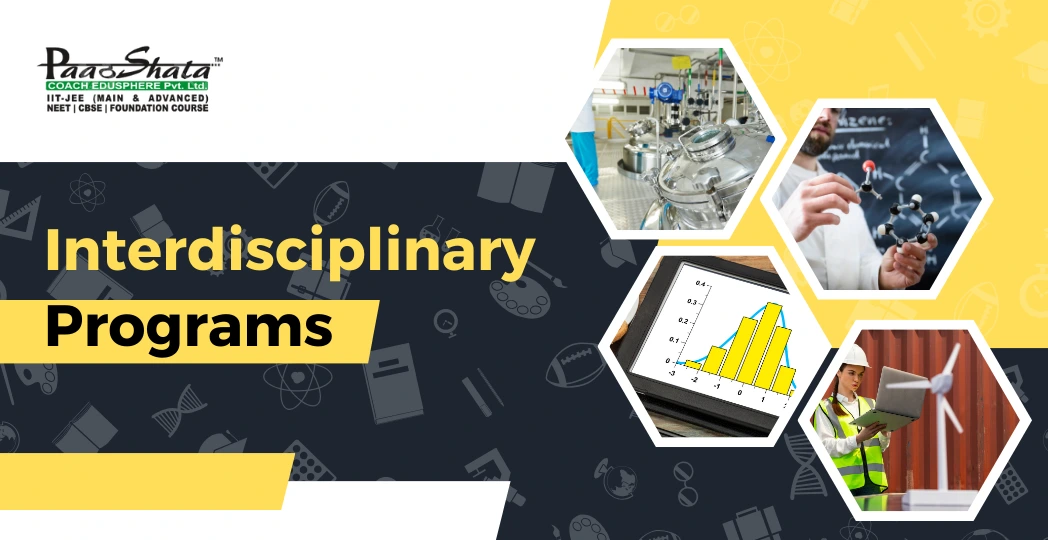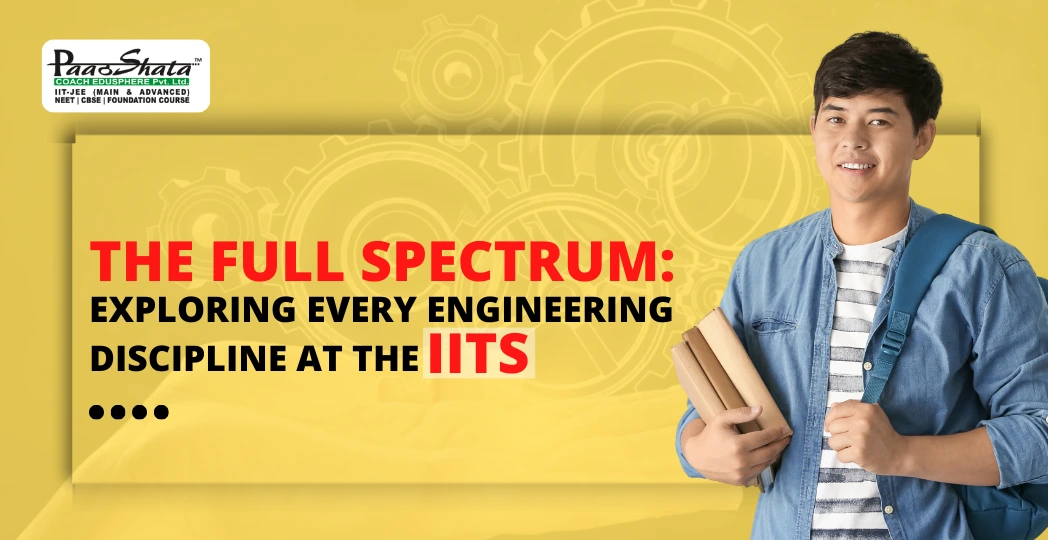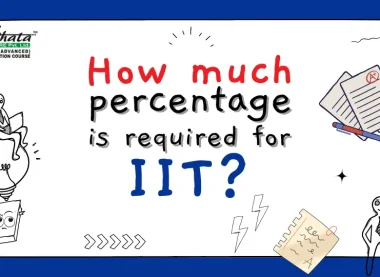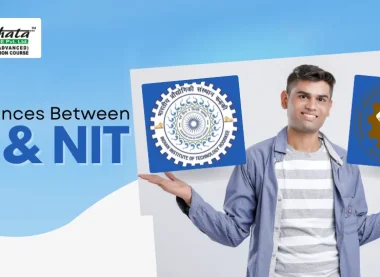Introduction
The Indian Institutes of Technology (IITs) are the country’s premier institutes for engineering education and research. Established in the 1950s and 1960s, the IITs have built a reputation for excellence in technical education and producing graduates who go on to have influential careers in engineering, science, technology, and management.
There are currently 23 IITs located across India. The first IIT was set up in Kharagpur in 1951, followed by IIT Bombay, IIT Madras, IIT Kanpur, and IIT Delhi in the late 1950s and early 1960s. Over the decades, more IITs have been established or upgraded to IIT status.
The IITs offer rigorous undergraduate (BTech), postgraduate (MTech), and doctoral programs across various engineering disciplines. Admission to the IITs is extremely competitive – only the top rankers in the Joint Entrance Examination (JEE) qualify for admission. This leads to exceptionally talented students joining the IITs each year.
The IITs are known for their outstanding faculty, state-of-the-art infrastructure, emphasis on research and innovation, and flexible academic structure. IIT graduates are highly sought after by corporate recruiters and global universities for their analytical skills, problem-solving abilities, and innovative thinking. Through the course of their education at the IITs, students are transformed into capable engineers, scientists, and innovators who make significant contributions in their fields of work.
Bachelor’s Programs

The Indian Institutes of Technology (IITs) offer a wide range of engineering disciplines at the undergraduate Bachelor’s degree level. The major branches of engineering available as 4-year BTech programs at IITs include:
Computer Science and Engineering (CSE)
Focus on software development, algorithms, programming languages, operating systems, databases, and computer architecture. Offered at all IITs.
Electrical Engineering (EE)
Studies power systems, analog and digital electronics, control systems, signal processing, telecommunications, etc. Available at all IIT campuses.
Mechanical Engineering (ME)
Covers thermodynamics, robotics, automotive engineering, aerospace engineering, manufacturing, instrumentation, and more. Offered at all IITs.
Civil Engineering (CE)
Includes structural engineering, construction, transportation engineering, environmental engineering, geotechnical engineering, etc. Available at all IITs.
Chemical Engineering (ChE)
Deals with chemical processes, fluid mechanics, heat transfer, kinetics, reactor design, and more. Offered at most IITs.
Metallurgical and Materials Engineering (MM)
Studies metals, ceramics, polymers, composites, nanomaterials, corrosion, failure analysis, etc. Offered at some IITs.
Biotechnology/Bioengineering (BT/BE)
Combines biology and technology to develop useful products. Offered at a few IITs.
Other branches
Aeronautical, Industrial, Mining, Manufacturing, Energy Engineering, etc offered at select IITs.
The core engineering branches above form the foundation of the undergraduate programs at the IITs. Students get rigorous training in their chosen discipline along with mathematics, science, and humanities courses.
Dual Degree Programs

The IITs offer dual degree programs that integrate undergraduate and postgraduate studies. These programs allow students to earn two degrees in 5-6 years after 12th standard.
Some of the popular dual degree programs are:
BTech + MTech Dual Degree:
This is offered in different engineering branches like Computer Science, Electrical, Mechanical, Civil, etc. Students can specialize in specific areas in the postgraduate portion.
BS + MS Dual Degree:
Offered in branches like Physics, Chemistry, Mathematics, etc. Students obtain in-depth knowledge through advanced coursework and research.
Integrated MSc Programs:
BSc + MSc dual degrees offered in branches including Physics, Chemistry, Mathematics, and Biological Sciences. Focuses on research and development.
DD Programs:
Five-year integrated dual degree programs in Design, Automotive Engineering Design, Industrial Design, Visual Communication, Interaction Design, etc. Offered at IIT Guwahati and IIT Hyderabad.
The key benefits of pursuing a dual degree at IITs are saving time, reduced course fees, opportunities for advanced research, and accelerated career growth in both industry and academia. The integrated structure allows for continuity and hands-on training.
Department of Design

The Department of Design at IIT offers unique programs that combine design principles with engineering fundamentals. Students get to explore industrial design, visual communication, interaction design, mobility, and vehicle design, among others.
Some of the main programs offered by the Department of Design are:
– Bachelor of Design (BDes)
– Industrial Design
– Visual Communication
– Interaction Design
– Master of Design (MDes)
– Industrial Design
– Visual Communication
– Mobility and Vehicle Design
– Interaction Design
– Integrated Product Design
– Doctoral Program (PhD)
The four-year BDes program focuses on teaching design fundamentals, theory, and practice. Students take foundational courses in the first year covering math, science, and engineering. In the next three years, they take advanced courses in design thinking, user research, form studies, color and imaging, information design, human factors, and more.
The MDes and PhD programs offer specializations for students to gain deeper expertise. For example, the Mobility and Vehicle Design specialization has courses in automotive styling, transportation systems, digital modeling, human factors, and more.
Overall, the Design department at IIT aims to produce well-rounded designers equipped to handle real-world challenges in product design, visual communications, mobility solutions, and more. The programs integrate technical knowledge and creative skills to nurture next-gen innovators and design thinkers.
Interdisciplinary Programs

IITs offer several interdisciplinary programs that combine multiple branches of engineering and allow students to gain expertise across disciplines. Some notable interdisciplinary programs include:
Biotechnology
Combining biology, chemistry, and engineering to solve problems related to living organisms and systems. Offered at IIT Delhi, IIT Guwahati, and IIT Roorkee.
Engineering Science
Blends applied science and math with engineering fundamentals. Offered at IIT Bombay, IIT Delhi, IIT Guwahati, IIT Kanpur, and IIT Madras.
Energy Science & Engineering
Focuses on sustainable energy sources and systems. Offered at IIT Bombay and IIT Kharagpur.
Environmental Engineering & Management
Applies engineering principles to protect and improve the environment. Offered at IIT Bombay, IIT Delhi, IIT Kanpur, IIT Kharagpur, and IIT Roorkee.
Industrial Chemistry
Combines chemical engineering and industrial processes. Offered at IIT Bombay and IIT Delhi.
Materials Science
Studies relationships between structure and properties of materials. Offered at IIT Bombay, IIT Delhi, IIT Kanpur, and IIT Madras.
Mathematics & Computing
Applied math and computing to solve complex engineering problems. Offered at IIT Delhi, IIT Guwahati, and IIT Madras.
Naval Architecture & Ocean Engineering
Focuses on the design of ships, marine vehicles, and ocean systems. Offered at IIT Kharagpur.
Systems Science & Engineering
Uses a system thinking approach to solve large-scale socio-technical problems. Offered at IIT Bombay.
These interdisciplinary programs equip students with diverse skill sets and prepare them for careers at the intersection of multiple fields. The wide range offered allows students to choose a program aligned with their interests.
Admission Process
The Indian Institutes of Technology (IITs) have a very competitive admission process. Students have to go through the Joint Entrance Examination (JEE) to get admission into the undergraduate programs at any of the 23 IITs.
The JEE is conducted in two phases:
JEE Main
This is the first phase which acts as a screening test. Based on the JEE Main scores, the top 2.5 lakh candidates qualify for JEE Advanced.
JEE Advanced
This is the second phase which is conducted by one of the IITs on a rotational basis. It is highly competitive with only top rank holders getting admission into the IITs.
To be eligible for JEE Main, students must have passed Class 12 exams with a minimum of 75% marks (65% for SC/ST students). For JEE Advanced, students must be among the top 2.5 lakh rankers in JEE Main.
The selection process is based on the All India Ranks (AIR) obtained by students in JEE Advanced. Seats across all IITs are filled based on the choices made by candidates during counseling. The top-ranked holders are offered admission first. Students have to fulfill the minimum cut-off set by each IIT to be eligible for admission.
Apart from excellence in JEE, students are also required to meet other criteria like age limit, year of passing Class 12, number of attempts, etc. to get admission into IITs. The admission process aims to select the brightest engineering talents across the country through a rigorous selection procedure.
Campuses
India’s 23 IITs are spread across the country, enabling an IIT education to be accessible from North to South, East to West. Here are the main campuses:
IIT Kharagpur
The first IIT was founded in 1951 in West Bengal. Specializations in mining, metallurgy, aerospace engineering, and naval architecture.
IIT Bombay
Set up in 1958 in Mumbai, Maharashtra. Strong in computer science, engineering design, metallurgy, and industrial engineering.
IIT Madras
Started in 1959 in Chennai, Tamil Nadu. Programs in manufacturing and automotive engineering. Leader in open-source education.
IIT Kanpur
Founded in 1959 in Kanpur, Uttar Pradesh. Specializations in material science, electronics, and communication.
IIT Delhi
Began in 1961 in New Delhi. Strong in computer science and engineering, applied mechanics, and chemical engineering.
IIT Guwahati
Started in 1994 in Guwahati, Assam. Specializations in biotechnology, energy, and disaster management.
IIT Roorkee
Converted into an IIT from the University of Roorkee in 2001, Uttarakhand. Programs in earthquake engineering, hydrology, and nanotechnology.
IIT Bhubaneswar
Started in 2008, in Odisha. Departments in materials, mechanical, electrical, and civil engineering.
IIT Gandhinagar
Founded in 2008 in Gujarat. Focus on interdisciplinary education and project-based learning.
IIT Hyderabad
Started in 2008 in Telangana. Specializations in biomedical, materials, and energy engineering.
IIT Patna
Founded in 2008 in Bihar. Departments in computer science, mechanical engineering, and physics.
IIT Ropar
Started in 2008 in Punjab. Specializations in metallurgical engineering, energy, and environment.
IIT Indore
Founded in 2009 in Madhya Pradesh. Programs in materials, biosciences, engineering, and mechanical engineering.
IIT Mandi
Started in 2009 in Himachal Pradesh. Focus on interdisciplinary education and the Himalayan environment.
Founded in 2008 in Rajasthan. Specializations in robotics, solar energy, and AI.
IIT Palakkad
Started in 2015 in Kerala. Programs in artificial intelligence, robotics, and data science.
IIT Tirupati
Founded in 2015 in Andhra Pradesh. Specializations in computational engineering, energy systems, and smart technologies.
IIT Bhilai
Started in 2016 in Chhattisgarh. Departments in computer science, electrical, and mechanical engineering.
IIT Goa
Founded in 2016 in Goa. Programs in artificial intelligence, biotechnology, and naval architecture.
IIT Jammu
Started in 2016 in Jammu & Kashmir. Specializations in biomedical engineering, and mechanical engineering.
IIT Dharwad
Founded in 2016 in Karnataka. Programs in electrical engineering, computer science, and physics.
This wide geographical distribution allows students from across India to access an IIT education without having to travel far. The different campuses also enable specializations in fields relevant to their local communities and strengths.
Specializations
The Indian Institutes of Technology (IITs) offer a wide range of engineering specializations across various disciplines. Here are some of the prominent specialized programs unique to specific IIT campuses:
IIT Madras
Offers specialized BTech programs in Aerospace Engineering, Naval Architecture and Ocean Engineering, Engineering Physics, and Engineering Chemistry.
IIT Kharagpur
Has specialized BTech programs in Agricultural and Food Engineering, Mining Engineering, and Geomatics Engineering. Also offers a 5-year dual degree in Exploration Geophysics.
IIT Bombay
Has unique BTech specializations in Energy Engineering, Engineering and Society, Engineering Science, and Environmental Science and engineering. Also offers a dual degree in Industrial Engineering & Operations Research.
IIT Guwahati
Offers specialized BTech programs in Biotechnology and Design. Also has unique MTech specializations in Nanotechnology and Computer Science and Engineering with a specialization in Information Security.
IIT Kanpur
Provides specialized BTech programs in Biological Sciences & Bioengineering and Environmental Science & Engineering. Also offers an MTech in Nuclear Engineering & Technology.
IIT Delhi
Has specialized BTech programs in Engineering Physics, Production and Industrial Engineering, Textile Technology, and Polymer Science and engineering.
IIT Roorkee
Offers specialized BTech programs in Paper Technology and Biotechnology. Also provides an Integrated dual degree in Economics.
So in summary, each IIT campus leverages its unique strengths, research focus, and infrastructure to provide specialized engineering programs catering to advanced domains and emerging technology areas. This allows students to gain in-depth knowledge in niche specializations.
Placements
The Indian Institutes of Technology (IITs) are renowned for the excellent placement opportunities they provide to their graduates. Campus placements at the IITs attract hundreds of leading companies from India and abroad, resulting in some of the highest salary packages offered to engineering students in India.
The placement process begins with companies visiting different IIT campuses as early as the 6th semester to recruit students for internships and full-time jobs upon graduation. By the end of the graduation year, most IIT students have job offers in hand, thanks to the robust placement infrastructure provided by the IITs.
Average Salaries
Across the various IIT campuses, the average salary offered to graduates can range from ₹8-15 lakh per annum, going up to ₹30 lakh and above for computer science graduates from the top IITs. The highest salary packages often reach 1 crore and above.
Computer science and electronics/electrical engineering students tend to attract the highest average salaries due to high demand. However, all engineering disciplines see excellent pay packages with an average starting salary of ₹10 lakh per annum.
Top Recruiters
Some of the top companies that regularly recruit engineers from IIT campuses include Google, Microsoft, Samsung, Texas Instruments, Qualcomm, Boston Consulting Group, McKinsey, Goldman Sachs, JP Morgan, Tata, L&T, DRDO, ISRO, ONGC, Reliance, Mahindra, Flipkart, and hundreds of other reputed firms.
Companies visit and offer jobs at campuses like IIT Bombay, IIT Delhi, IIT Madras, IIT Kanpur, IIT Kharagpur, IIT Roorkee, IIT Guwahati, and IIT Hyderabad based on their hiring needs. The excellent placements across all older and newer IITs demonstrate the high standard of engineering education offered.
Graduating from an IIT campus provides access to some of the most coveted jobs and internships in the corporate world, enabling students to launch their careers at leading companies in India and worldwide.
Conclusion
The Indian Institutes of Technology (IITs) are the country’s premier institutes for engineering education and research. With 23 IITs established across India, these institutes offer a diverse range of engineering branches and interdisciplinary programs to choose from.
Some key highlights about pursuing engineering education at an IIT:
IITs offer Bachelor’s (BTech), Integrated Master’s, Dual Degree, and Direct PhD programs in various engineering disciplines such as Computer Science, Electrical, Mechanical, Civil, Chemical, Aerospace, Biotechnology, Materials Science, etc.
– In addition to core engineering, IITs provide interdisciplinary options combining engineering with design, science, humanities, management, and entrepreneurship.
– The admission process is highly competitive, with only the top scorers in the Joint Entrance Exam (JEE) getting selected.
– Each IIT campus has its areas of specialization and research focus within engineering and science. For instance, IIT Bombay is known for its strength in computer science and electrical engineering, IIT Madras for computational engineering and aerospace, and IIT Kharagpur for mining and geology.
– An engineering education from an IIT provides excellent job prospects and placements. Top technology companies and startups compete to recruit IIT graduates because of their rigorous training in technical skills, problem-solving solving, and innovation.
In summary, the IITs aim to provide world-class engineering education and research opportunities to talented youth. Their diverse offerings, rigorous academics, accomplished faculty, and excellent facilities make them the most sought-after institutes for studying engineering in India.






